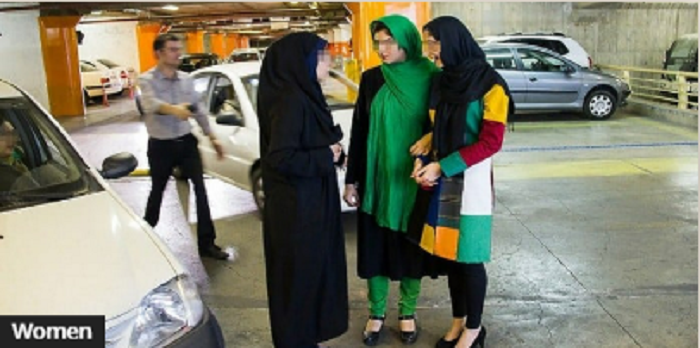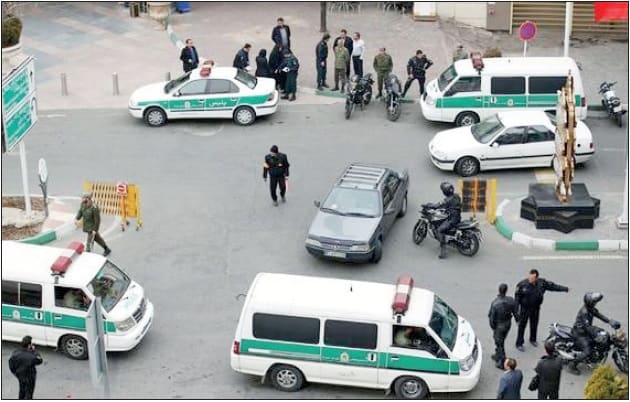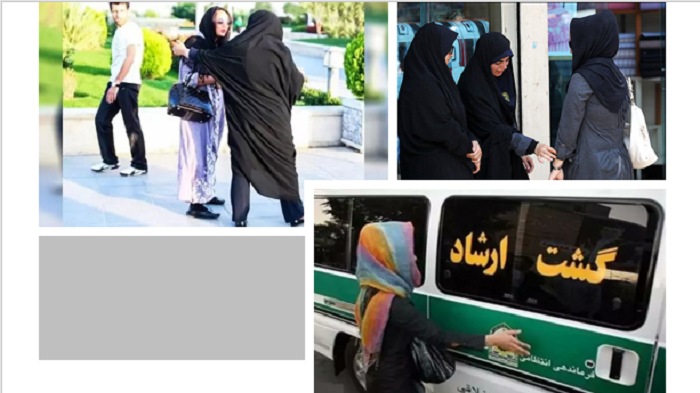
With Iran’s national uprising anniversary looming, the theocratic regime has made a controversial move: the resurrection of the contentious Morality Patrol (Gasht-e Ershad).
This decision has already ignited strong reactions within the ruling class and among the regime’s most loyal advocates, sparking widespread apprehension over the potential aftermath. As covered in a recent piece by the Bahar News newspaper, the ruling administration seems to be grappling with a wave of confusion, ignorance, and disarray, leading many to question why the Morality Patrol, despite its troubled history and widespread criticisms, is being reintroduced.
Critics conjecture that this surprising move could be a desperate attempt to divert the public’s attention away from an economy teetering on the brink of collapse, compounded by increasing instances of hypocrisy, corruption, and misappropriation of religious endowments. Additionally, the regime’s repeated failure to represent its people’s interests has only bred apathy, leading the government to resort to old tactics like reinstating the Morality Patrol.

The regime’s repeated failure to represent its people’s interests has only bred apathy, leading the government to resort to old tactics like reinstating the Morality Patrol.
The re-emergence of the Morality Patrol is being perceived as a high-risk move, so alarming that even so-called reformists within the regime are terming it an act of “self-destruction.” Prominent figures like Mohammad Bagher Qalibaf, the parliament’s speaker, are distancing themselves from the controversial decision to safeguard their positions amid the regime’s internal power struggles.
State-run newspapers, such as Farahikhtegan, are striving to insulate the regime from a potential new crisis, possibly fearing that it could incite another uprising. They cite concerns related to the hijab, which holds both cultural and security dimensions within Iranian society.
The decision to reinstate the Morality Patrol is broadly viewed as a regressive step, echoing the notorious methods of the past. Proponents of this move have attempted to rebrand it as the ‘Police Patrol’ or ‘Social Norm Patrol,’ claiming it aims to provide “verbal notices” while maintaining respect towards citizens.

The decision to reinstate the Morality Patrol is broadly viewed as a regressive step, echoing the notorious methods of the past.
Yet, despite Supreme Leader Ali Khamenei’s approval, no faction is willing to shoulder full responsibility for this decision, resulting in what insiders have termed a “responsibility crisis.” Experts within the regime have warned that the Morality Patrol’s potential resurgence could have profound implications for Iranian society and public opinion.
At the heart of this heated debate, the regime’s police stress the necessity of the Morality Patrol, signaling Khamenei’s intent to suppress women in a systematic way. This suggests that the regime views women as potential catalysts of upheaval, posing a threat to the status quo and capable of igniting rebellion. As these debates unfold, the future of Iranian society hangs in the balance.
MEK Iran (follow us on Twitter and Facebook), Maryam Rajavi’s on her site, Twitter & Facebook, NCRI (Twitter & Facebook), and People’s Mojahedin Organization of Iran – MEK IRAN – YouTu

